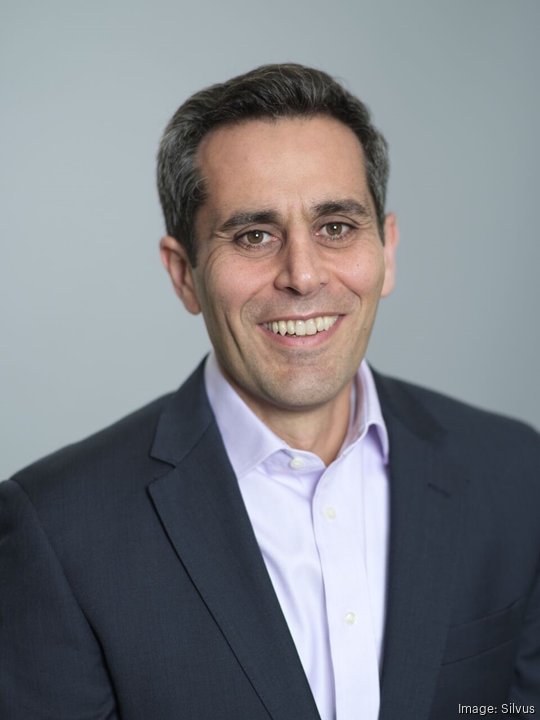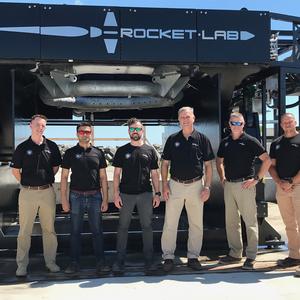
Babak Daneshrad was looking for a way to make cost-effective tactical radios that could deliver robust communications in the harshest environments, he said.
While some other companies at the time were seeking to manufacture radios designed around a WiFi-enabled chip-set, he dove into MIMO technology.
MIMO, an acronym for multiple-input and multiple-output, is a way to multiply the capacity of a radio link using multiple transmission and receiving antennas. It’s evolved into an essential element of wireless communication standards.
Ultimately, Daneshrad founded Silvus Technologies to build radios that would be “future-proofed,” enabling users to expand their capabilities by downloading future updates.
Silvus has more than 400 customers worldwide, including public safety agencies, military units and first responders.
Daneshrad claims that Silvus Technologies’ StreamCaster MANET (Mobile Ad Hoc Networking) radios provide “high-fidelity video, voice and IP data communications in the harshest operational environments.”
“This is especially important in areas where this is no communications infrastructure, or where cell communications have been disrupted or are non-existent,” he added.
From 2021 to 2022, the company experienced a 200% growth in sales volume, he added.
Last year, the company grew its team from 86 total employees to more than 125. It now has more than 140 employees and is looking to hire 20 more, in fields including engineering, R&D, sales and business operations. In June, Silvus plans to expand its office size by more than 125% at its headquarters in West Los Angeles, growing from approximately 15,000 square feet to more than 33,000 square feet, Daneshrad said.
How it works
For first responders during natural and man-made disasters, Silvus’ radios are able to create a “tactical mesh communications network” that connects hundreds of first responders on the ground, in the air and at sea.
In contrast to legacy radio systems or cell phone technology, Silvus created “self-forming and self-healing mesh networks that automatically adapt to changing environmental conditions and can exist in complex and congested RF (radio frequency) environments, all without the need for a dedicated infrastructure,” Daneshrad told L.A. Inno.
For defense and military applications, the Department of Defense and Allied Nations Ministry of Defense armed forces are upgrading the radio technology provided to the various divisions of their armed forces.
“Going beyond basic voice walkie-talkies, they need to be able to connect hundreds of soldiers to their command centers with two-way voice, video and IP data communications,” he said. “Plus, they need the ability for their radios to operate in electronic warfare-contested environments, where adversaries are either trying to intercept or jam their communications signals.”
Silvus Technologies has been selected to provide communications technology for several of the U.S. Army’s modernization efforts, including the Army’s Integrated Tactical Network, Single Channel Data Radio, and Next Generation Combat Vehicle program.
The Marine Corps has chosen the Silvus StreamCaster MANET radios for its Networking-on-the-Move mobile communications system.
Foundation
Daneshrad started the company with three partners in 2004 while he was a professor of electrical engineering at UCLA. In 2019, he retired from teaching to dedicate himself full-time to growing Silvus.
At that point, the two other founders exited the company to pursue other opportunities, he said.
Silvus’ early R&D work was funded by a grant from the Defense Advanced Research Projects Agency (DARPA), which focuses on emerging science and technologies for national security.
Since then, Silvus has been contracted by other U.S. Department of Defense agencies to conduct more than $70 million in R&D projects, many of which are now integrated into the company’s commercial product line.
In late 2019, private equity firm The Jordan Company acquired Silvus Technologies. Daneshrad declined to provide acquisition details or insights into management control.
Before founding Silvus, Daneshrad was the founder and chief scientist at Innovics Wireless, a semiconductor company. Its technology provided high-speed and high-capacity 3G wireless communications that were integrated into base station equipment developed by companies like Ericsson.
During his time at Innovics from 2001-2003, it raised over $14 million in VC funding. It was ultimately acquired by Roper Technologies in 2005 for $45 million.



